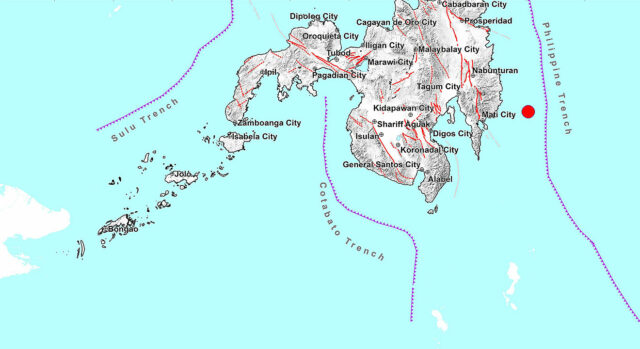(Part 4)
One very obvious lesson we can learn from the countries in which the creative industry sector has reached a certain level of success is the very important role of the Government in supporting the various stakeholders of the industry. That is why I would like to report in this article what the leaders of the Creative Economy Council of the Philippines (CECP) expect of the next administration so that their industry can take full advantage of the favorable global trends that we have been enumerating in the previous articles of this series. It would be logical that the champions for the local creative in the next administration should be legislators, cabinet officials, and local government officials who have themselves been involved in the industry as film or TV actors and actresses, media personalities, musicians, and entertainers in general. This article is first and foremost addressed to them.
The ideas contained in this article have been extracted mostly from a position paper prepared by the CECP at the height of the pandemic. There is a portion of the strategy paper devoted to how the sector will be able to recover from the adverse impact of the pandemic. A larger part of the strategic recommendation is a long-term Creative Economy Roadmap up to 2030. Since I have covered the short-term stop-gap measures in a previous part of this series, I will focus on the long-term plan envisioned by the CECP, especially on what they expect at least the next three administrations to do to proactively help the sector to flourish and to attain the vision of becoming the top creative economy in the ASEAN region in much the same way that South Korea is the top creative economy in Northeast Asia.
Using Strategic Planning nomenclature, the stated Vision 2030 is: By 2030, the Philippines will be the Number One Creative Economy in the ASEAN in terms of size and value of our creative industries, as well as the competitiveness and attractiveness of our creative talents and content in the international markets. To attain this Vision 2030, the major objectives are as follows:
1. Rebuild the creative industries to generate jobs, grow its contribution to gross domestic product (GDP), and stimulate inclusive development across the country.
2. Accelerate the growth of creative exports, especially creative services outsourcing.
3. Develop, promote, and protect Filipino intellectual property in content and innovation for long-term sustainable value.
4. Build a renewed sense of pride and cultural soft power through Filipino creativity that is recognized and valued across the world.
To attain these objectives, six strategic areas will be pursued, as follows:
1. Creative policy: Establish a Creative Economy Agency that will set growth targets for the Philippine Creative Economy and will implement the policies to accelerate growth.
2. Creative industries: Identify priority creative industries that have the highest potential to generate jobs and revenues from domestic and foreign markets.
3. Creative zones: Develop special economic creative zones where prioritized creative industries collocate to achieve economies of scale and gain market viability.
4. Creative cities. Encourage LGUs, especially outside Metro Manila, to embrace their own creative economy development agenda. Incentivize cities that gain UNESCO Creative Cities recognition. Some of my own candidates for these “creative cities” are Balanga, Bataan; Baguio; Cebu; Vigan, Ilocos Sur; Puerto Princesa, Palawan; Iloilo City; Dumaguete City; Zamboanga City; Naga City; and Lipa City. I am sure there will be more. I suggest that those who will be elected LGU officials of these cities (and others) make use of part of what they will receive from the National Government under the Mandanas-Garcia ruling to fund some of the facilities (in partnership with the private business sector) that will be needed to realize this objective.
5. Creative tourism. Grow tourism through creative festivals, events, and visits to creative communities. The more than 60 million Filipinos who were domestic tourists before the pandemic are expected to indulge in “revenge travel” after the pandemic. They should be the first to be targeted by the creative cities even before the foreign tourists who can be expected to come back in big numbers only in 2024.
6. Creative education. Strengthen our pipeline of world class Filipino creatives, while becoming an ASEAN Center of Excellence for Creative Education. The courses envisioned here should be patterned after the offerings of the College of St. Benilde system, an innovative offshoot of my alma mater, De La Salle University, that knew how to package academic programs that were more skills-oriented rather than college diploma-focused. The programs offered, more along the line of tech-voc education, are arts management, dance, music production, production design, theater arts, architecture, fashion design and merchandising, industrial design, interior design, animation, film, multimedia arts, culinary arts, photography, hospitality management, travel and tourism management, and real estate management.
As a guide to the next administration and future ones, the following goals and key result areas (KRAs) are being proposed:
1. Creative policy: Grow the creative economy from 6.52% of GDP to 15% by 2030; grow creative jobs from less than one million to 5 million full time jobs by 2030; be the Number One in ASEAN Creative Exports, focusing on our competitive advantage of creative services exports rather than goods exports.
2. Creative industries: Accelerate digital creative services exports/outsourcing, especially animation, game development, software and digital marketing; target $15 billion to $20 billion by 2030; reinvigorate creative goods exports with improved design and technology. Target $5 billion to $10 billion of creative goods by 2030.
3. Creative zones: Have 10 Creative Special Economic Zones across the country with the Clark Creative Zone as a lighthouse model.
4. Creative cities: Have five or more UNESCO Creative Cities that stimulate sustainable economic growth across the country through LGU policies that are focused on encouraging the establishment of creative enterprises in their localities. Baguio and Cebu can be pioneer models.
5. Creative tourism: 10 million foreign tourists attending Philippine-based creative festivals and events; generate at least $1 billion in creative tourism revenues ($100 per tourist for arts, crafts and experience).
6. Creative education: Provide world class creative education needed for 5 million creative jobs; become the ASEAN leader in creative education, with foreign students at 10% to 15% of the total creative students.
To achieve these goals, the Government, in close partnership with business and the academe, must implement the following policies and projects:
1. Establish a Creative Economy Technical Working Group (TWG) under the leadership of the Department of Trade and Industry (DTI). This TWG will federate and orchestrate the efforts of various agencies (the National Commission for Culture and the Arts, the Science and Technology, Tourism, and Education departments, the National Economic and Development Authority, etc.) to work together towards common goals; DTI leadership should monitor closely industry development, job creation, and economic impact; the TWG will set the foundation for a Creative Economy Agency to be patterned after Indonesia’s BEKRAF (Badan Ekonomi Kreatif).
2. Develop official creative economy statistics through consistent measurement and mapping: officially define creative industries to be included in the creative economy; measure jobs and revenues in each sector of the industry; provide creative economy statistical data for all key cities, using the tools of big data analysis; track the growth of the creative economy by industry and by geographical region year on year.
3. Develop an acceleration plan for creative services exports and outsourcing: clearly define priority international markets and sectors; define the resources needed to grow Philippine market share in these global markets; attract FDI into Philippine creative industries to accelerate growth; fund trade missions and investor road shows for identified priority industries; Project Benchmark: the IBPAP Industry Association plan developed by McKinsey.
4. Reinvigorate creative goods exports through design and technology interventions: develop programs for design workshops, manufacturing technology, and digital marketing innovation to help creative goods exporters improve their competitiveness in international markets.
5. The Intramuros Maestranza Creative Quarter for Design: Project concept approval by the Intramuros Board and Tourism department for priority execution in 2023; Project Benchmark: Thailand Design Center.
6. The Clark Creative Zone: creative process outsourcing (animation, digital games, software development, and digital marketing services, concept development and planning in progress with BCDA) for priority execution in 2023; Project Benchmark: the Dubai Media City.
7. National Government Incentives for accredited UNESCO Creative Cities: Fund to help creative city-specific projects (e.g. the Baguio International Creative Festival, the Baguio Creative Hub for Crafts and Folk Art); encourage LGUs to submit applications for 2023.
8. Develop an International Creative Festival designed to attract international participants: After the pandemic crisis, develop a high-profile Creative Festival that will help revive Philippine foreign tourism, although domestic tourism is expected to bounce back much earlier (the Panagbenga Festival in Baguio was already revived this March); Project Benchmark: the Montreux Jazz Festival and the Edinburgh Theater Festival.
9. Creative Talent Development Strategy: Identify talent gaps/needs for priority industries through a study to be completed in 2022; propose comprehensive programs for K-12, university, and tech-voc programs that close these gaps in partnership with the Department of Education, the Commission on Higher Education (CHED) and the Technical Education and Skills Development Authority (TESDA); Project Benchmark: the UK Design Industries Talent Gap Analysis
10. ASEAN Creative Education: Work with private and public universities to create courses and programs that will attract international students from the ASEAN region; launch pilot online programs by 2023.
These strategic directions were formulated pre-pandemic and will require some significant updating. I call upon the stakeholders of the Creative Economy of the Philippines to send me their reactions, updated information, and other policy recommendations that can be compiled by the CECP so that the new administration that will be in place on July 1 can hit the ground running in working towards the vision of making the Philippines the Number One Creative Economy in the ASEAN. There is no doubt that we have the human talent. What we need is the political will of the Government to give its full support to the private sector to make things happen.
Bernardo M. Villegas has a Ph.D. in Economics from Harvard, is professor emeritus at the University of Asia and the Pacific, and a visiting professor at the IESE Business School in Barcelona, Spain. He was a member of the 1986 Constitutional Commission.
bernardo.villegas@uap.asia










